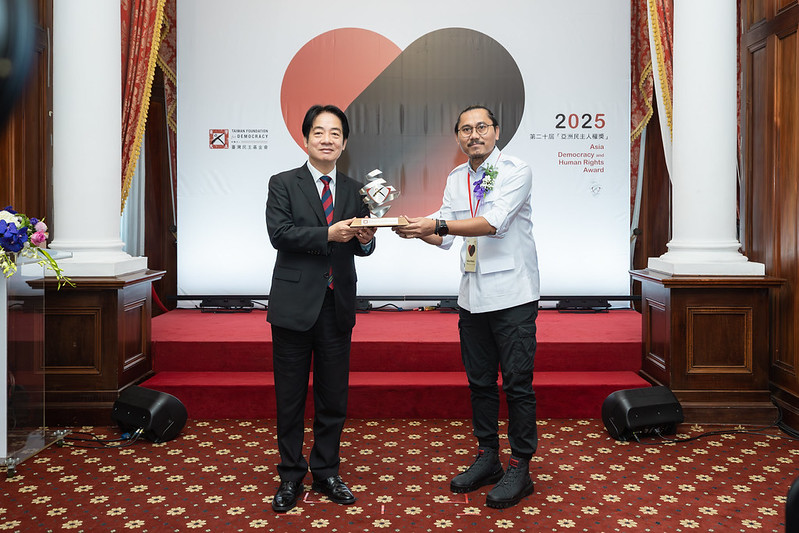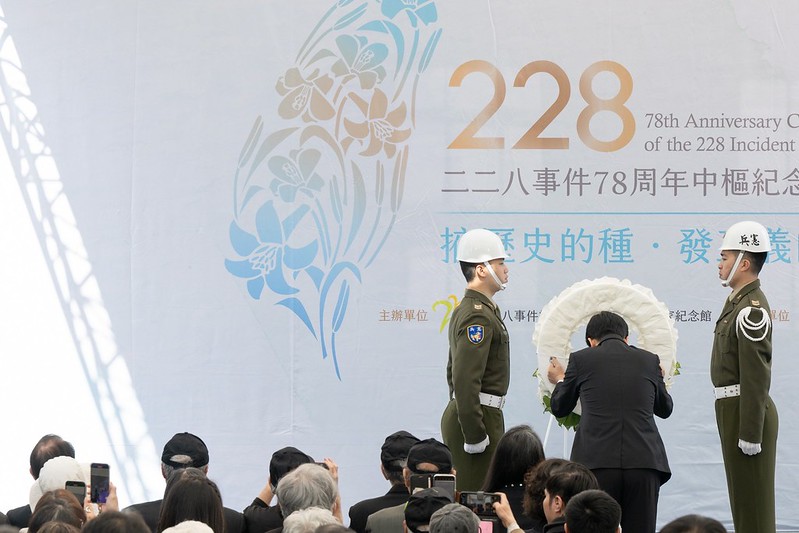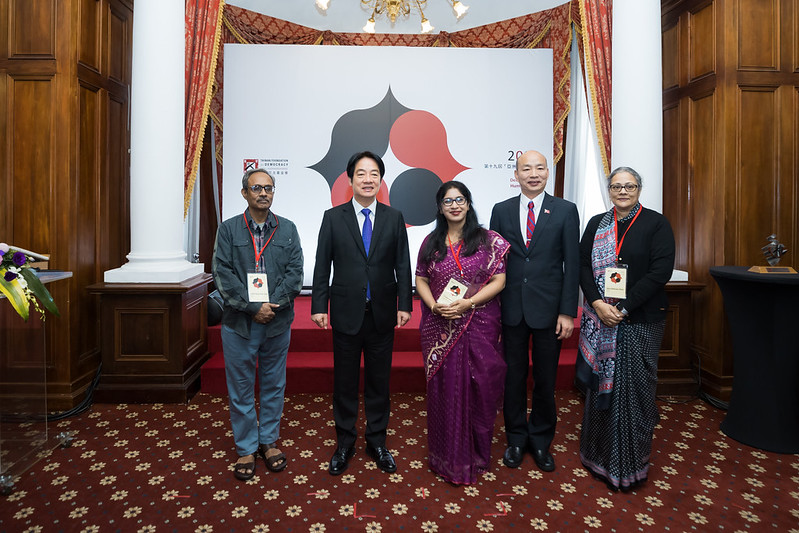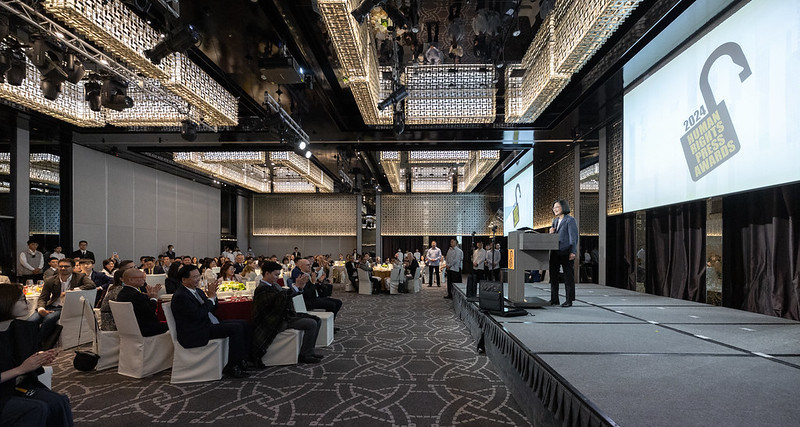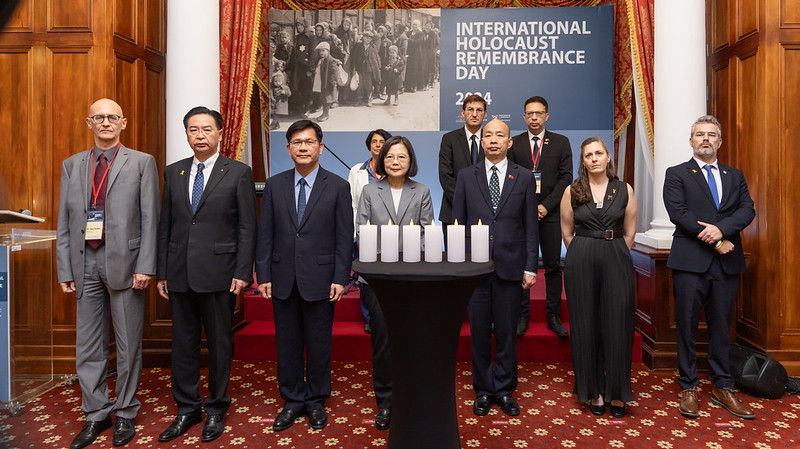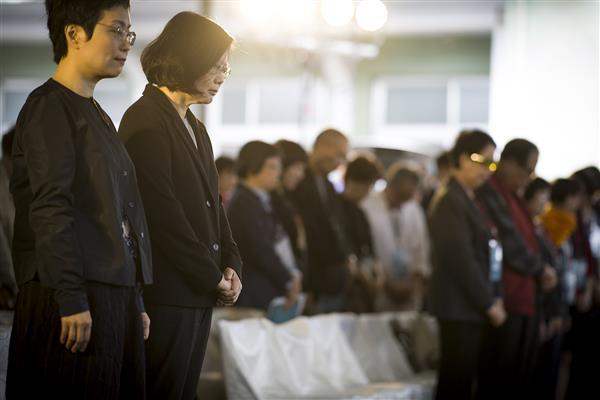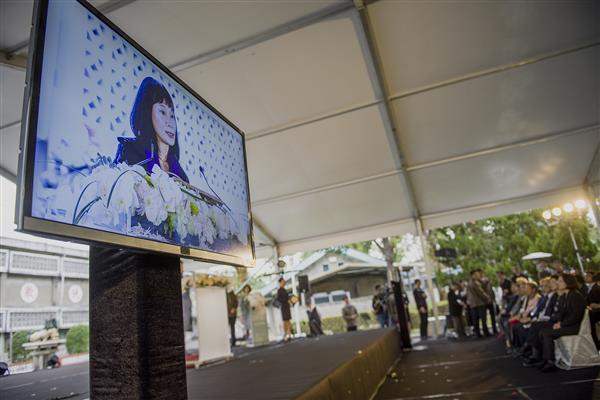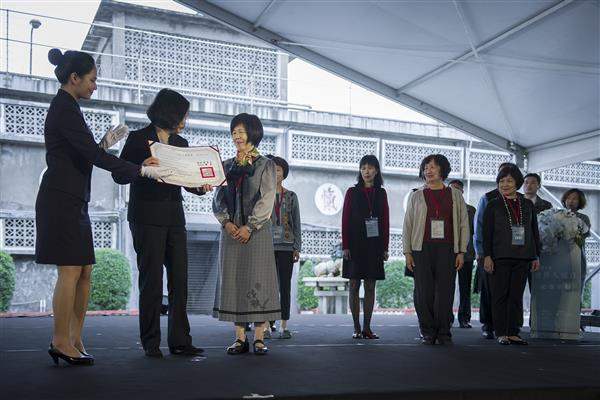News & activities
 News releases
News releases
On the morning of December 10, President Tsai Ing-wen visited the Jingmei Human Rights Memorial and Cultural Park in Taipei City to attend activities marking Human Rights Day 2016. The president gave her regards to political victims and their family members, and spoke about the government's strong determination to achieve transitional justice and set the historical record straight.
President Tsai first joined those in attendance in observing a moment of silence for all victims of political oppression, then listened to two songs—Rest in Peace and A Big River—performed by a choir organized by the Mutual Assistance Association for Former Political Prisoners in the Taiwan Area. Afterwards, President Tsai conferred "certificates of restored reputation" to the victims of political repression as well as their family members, and handed letters of thanks to four persons who had donated items that are of historical significance.
The following is a translation of President Tsai's remarks:
We are gathered here today at the Jingmei Human Rights Memorial and Cultural Park, which during the martial law period was the site of the Taiwan Garrison Command 's Judge Advocate Department, a detention facility for political prisoners. Many of the inmates here took great risks to get word out to the international community about the political oppression taking place in Taiwan, and this put considerable pressure on the government.
One of those people putting pressure on the government was Mr. Roger T. M. Hsieh (謝聰敏), who is with us here today. He was once detained here, and sent messages out through cracks in the walls to let families and the international community know about goings-on inside the detention center. This is one of the best known stories to come out of that era.
In addition to Mr. Hsieh, there's another story I especially wanted to mention today. There was a military judge at that time named Tseng Sheng-hsien (曾勝賢), who was sympathetic to the political prisoners and leaked information on court proceedings. He was sentenced to prison, and ended up spending a total of five years in facilities in Jingmei, on Green Island, and elsewhere.
After the Jingmei Human Rights Memorial and Cultural Park opened to the public in 2010, Mr. Tseng came back here for a tour and happened across a park volunteer of about 80 years old. He recognized the man, who had been his physical education instructor at the Jingmei school of military justice.
After hearing about what Mr. Tseng had been through, the old instructor simply said: "The past is past, it's just good to know you're doing well now." But others who witnessed the exchange were deeply moved.
Both Mr. Tseng and the instructor were once employees of the past authoritarian government, but one later became a prisoner of that authoritarian state, while the other would come to a better understanding—because of a visit to an exhibition many years later, following Taiwan's transition to democracy—of the truth concerning the White Terror and its victims.
Today, my new administration is working to achieve transitional justice. One reason we're doing this is to create lots of opportunities and venues for more encounters like that between Mr. Tseng and his former instructor. I firmly believe that by re-starting dialogues and learning to empathize with each other, we can move further down the path toward reconciliation.
This episode in history was far more complex than we can imagine. We saw state violence, but we also saw true human nature. We experienced helplessness in a time of great tumult, but we also witnessed the tremendous willpower that even one small individual can have.
In seeking transitional justice, we do not target any particular individual or political party, nor are we engaged in a political struggle or purge targeted at any particular group. The fact is that political oppression makes no ethnic distinctions. In fact, a very high percentage of the victims were from the Chinese mainland.
The goal of transitional justice is to seek truth and reconciliation. We need to develop a clear picture of the humanitarian and human rights abuses caused by the political structure, and to re-evaluate them from both moral and judicial perspectives. We need to understand the stories of both the victims and the victimizers. And, more importantly still, we need to listen, and to travel the inner journey that Professor Yang Tsui (楊翠) just now mentioned. Only then can we arrive at a consensus that will enable those two groups to live together within the same society.
Covering up the past precludes the possibility of forgiveness. Reconciliation must be based on truth. In our search for truth, as I've already said, over the coming three years we intend to complete the first national truth report on the White Terror period. This report must be based on oral histories and political archival materials. Thanks to the hard work of so many people over the past decade and more, we now have built up a big collection of oral histories recorded in both textual and audiovisual format.
I want to give special thanks today to Mr. Roger T. M. Hsieh and many other victims and their family members for donating valuable items in their private possession to help us piece together a more complete picture of our past.
Political archival materials provide the last piece in our jigsaw image of the past. For this reason, we have already asked the National Archives Administration to inventory its materials. We will vigorously implement this undertaking as well as a follow-on digitization project in order to support the production of more studies related to the White Terror.
The inventorying of archival materials is a huge project. Many of the political archival materials covering the period from 1945 through the amendment of Article 100 of the Criminal Code in 1992 are scattered among collections in the possession of the Ministry of National Defense Military Intelligence Bureau, the Ministry of Justice Investigation Bureau, and other agencies. But no matter how thickly the dust has collected on these materials over the years, we will do everything we can to retrieve the materials. Not a single page will be overlooked. We will make sure that the history contained therein will once again see the light of day.
In addition to recovering the historical truth, we must also present our findings publicly via publications, art, films, and other media, so that more people will understand the White Terror period. And, most important of all, critically examining the system of oppression and thinking hard about justice ought to become a mass movement in our society, so that we can build up a set of shared values and goals.
This is a societal dialogue that will have an impact on the success or failure of our campaign for transitional justice. This work will be spearheaded over the coming year by the Ministry of Culture and the National Human Rights Museum.
The resources of the National Human Rights Museum are limited at this point, so until it has been strengthened it will be relying on a lot of unsung volunteers, many of them victims of political oppression, such as Mr. Kuo Chen-chun (郭振純), Mr. Tsai Kun-lin (蔡焜霖), and Mr. Chen Chin -sheng (陳欽生). I would also like to take this opportunity to extend special thanks to these people.
I often used to say that history can be forgiven, but it cannot be forgotten. Today, I would prefer to say that not only must we not forget history, we must also find within history a force to keep us moving forward, toward a future of reconciliation and solidarity.
It's perfectly alright for one person to say to another: "The past is past, it's just good to know you're doing well now." But a country or a society cannot say "the past is past" to the people as a whole until after the historical record has been set straight. And it is not enough that everything be relegated to the past; we must also ensure that state violence never happens again.
We are absolutely determined to achieve transitional justice. Let us all work together toward that end!
Among those in attendance at the event were Deputy Minister of Culture Celest Hsiao-ching Ting (丁曉菁), former political prisoners Tsai Kuan-yu (蔡寬裕), Liu Chen-tan (劉辰旦), and Yao Chia-wen (姚嘉文 ), as well as Yang Tsui, the granddaughter of the victim of White Terror oppression Yang Kui (楊逵).
